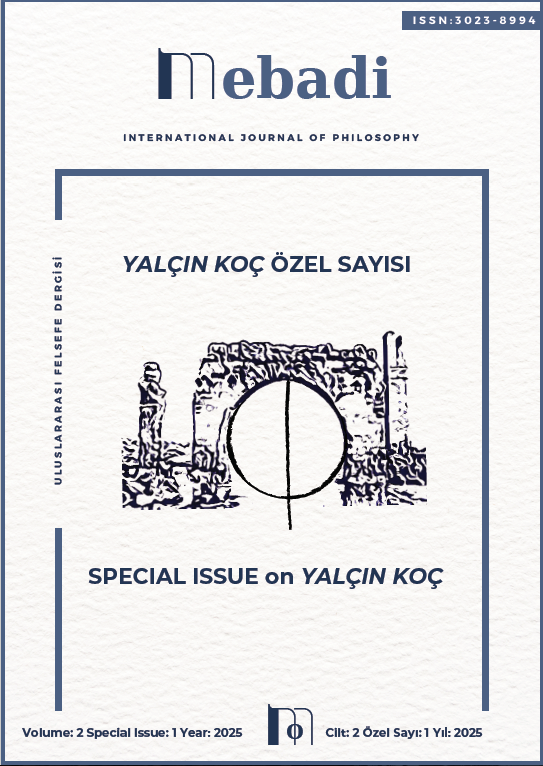Knowledge, Language, and the Formation of the Individual in Yalçın Koç’s Thought: A Critical Philosophy of Education
DOI:
https://doi.org/10.5281/zenodo.17332995Keywords:
Yalçın Koç, Philosophy of Education, Anatolian Yeast, Heart, Soul, Individual PersonAbstract
The philosophy of Prof. Dr. Yalçın Koç presents a framework for a critical philosophy of education by proposing a unique theory (theoria) centered on the “Anatolian Yeast” (Anadolu Mayası) and the “Heart/Soul” (Gönül), in opposition to the rational and discursive constructs of Western civilization. Koç’s fundamental aim is to instill wisdom concerning existence, being, objects, the universe, society, and humankind in minds, philosophy in intellects, and “Kelam” (Islamic scholastic theology) in hearts and souls. The foundation of our existence in the Anatolian geography is the “Anatolian Yeast.” This “yeast” is under the threat of extinction. The way to overcome this danger is through knowing this yeast. Koç’s system is built upon liberating the source of knowledge and the construction of individual identity from the rational and institutional limitations imposed by the West. Within this scope, the article scrutinizes Koç’s basic ontological, epistemological, and pedagogical principles, thereby presenting his views on the philosophy of education. The article addresses the individual’s existential state (being in a state of transcendence and fallenness) and examines “Kelam” as the source of knowledge and the role of language in establishing the object. Ultimately, it is argued that the ultimate goal of education is to elevate the fallen human being to the state of a moral person.
Downloads
Published
How to Cite
Issue
Section
Categories
License
Copyright (c) 2025 Selçuk Polat

This work is licensed under a Creative Commons Attribution-NonCommercial 4.0 International License.


